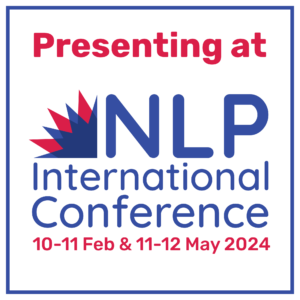How to Achieve Your Goals Using NLP

Every motivational speaker will tell you reaching the next level is about setting goals and achieving them. The bigger and more audacious the goal, the better! So go on, get achieving! Now!
But things don’t work that way…
The trouble is, things don’t always work out that way.
Life has a habit of sticking a spanner in the works, or you wake up one morning and realize you didn’t want that goal at all, but something totally different, or… after a while, this whole goal business starts sounding tinny and simplistic.
It’s hard enough just keeping afloat…
Goals are important in NLP. But NLP also understands that achieving them isn’t always a simple matter of willpower. If you wanted something really badly, you’d have it already.
Something is blocking you. What is it and why is it doing this?
What’s blocking you?
For psychologists like Freud, blocking came from a rebellious, ill-natured unconscious. It blocked you because it felt like it, end of story (maybe if you had five years of daily analysis we could do something about that, maybe.)
NLP takes a more optimistic approach, thanks to the concept of positive intention. This essentially states that your unconscious is on your side. Sadly, the unconscious is not very good at communicating, so can often appear to be negative (and, at times, even destructive). But underneath all the misunderstanding, it is looking out for you.
How NLP helps goal setting theory
If I’m coaching someone who tells me they are trying to achieve a goal but not achieving it, I ask them a simple question: “What’s stopping you?” People often look puzzled when I ask this, or say they don’t know, or “I suppose ‘I’ am, but I don’t know why”.
I would probably introduce the concept of positive intention at that time, and suggest that their unconscious mind is stopping them – in a positive way. I’d ask questions like ‘What are the benefits of your current life that would disappear if the goal were achieved?’ and ‘What benefits would disappear the moment you started taking the goal seriously?’ If these benefits are important to you, you are not going to achieve the goal: your unconscious will fight back.
If this all seems a bit mystical, let’s look at a common example: giving up smoking. Many people find that, having tried to give up and failed, there are lots of good things they get out of smoking that they don’t want to lose. They are part of a club – an attractively unfashionable club, fighting all those self-righteous know-alls who want to stop people doing things they like. They may even be part of a small intimate group who meet outside the front door at work at eleven and half-past three. It might just be a chance to get out of the office for ten minutes…
Focus on the benefits
The key is not just to accept the loss of these things and take it on the chin, but to find other ways that similar benefits can be brought into your life. Feeling rebellious? There are plenty of other ways of expressing that other than sticking a load of carcinogenic smoke down your throat. Want to meet like-minded souls? Get out and get socialising. And if you want to get out of the office for ten minutes, just go out and walk. (Or whatever solutions work for you: everybody has to find their own ways of replacing the lost benefits.)
It’s also worth examining if the goal is really one that you want, or is it one that you think you ought to want or that someone else wants you to want. To say this is not to advocate total selfishness: you can aim for a goal on behalf of someone else, but it will still only work if you truly want it to (a classic example is of parents giving up smoking when they have children).
Does it feel right?
In NLP we talk of congruence, which means wholeheartedness, conviction. Does it feel right in your head, heart and gut? NLP developer Robert Dilts suggests the following technique. Give your desire for your goal a mark out of five. If it’s not five, then use the material above to investigate why. If it is five, do the following. Put your hand on your head, and see if that feels right. Then put your hand over your heart, and ask the same. Then put your hand on your gut, your abdomen, and ask again. If all these feel right, then five it really is. Go for it!
If not, then put your hand back where the ‘five’ failed to register and ask yourself why. It is a core principle of NLP that wisdom resides not just in the brain but around the body: try this and see. The results may not be what you want to hear, but they are probably what you need.
Did you like this post?
Then check out our events and courses – get 10% off our blended learning NLP Practitioner courses with code NLPSUB10
Sign up to our new e-learning! – 40% off our brand new e-learning courses with code NLP40
Where to find us
For posts, events, free open days and more, follow NLP School on:
Where to find Robbie
Twitter: @RSteinhouse
LinkedIn: Robbie Steinhouse
What to read next
How NLP Can Help You with Procrastination









